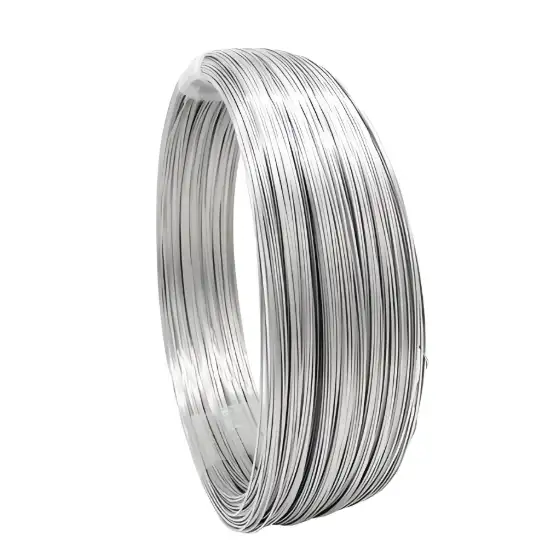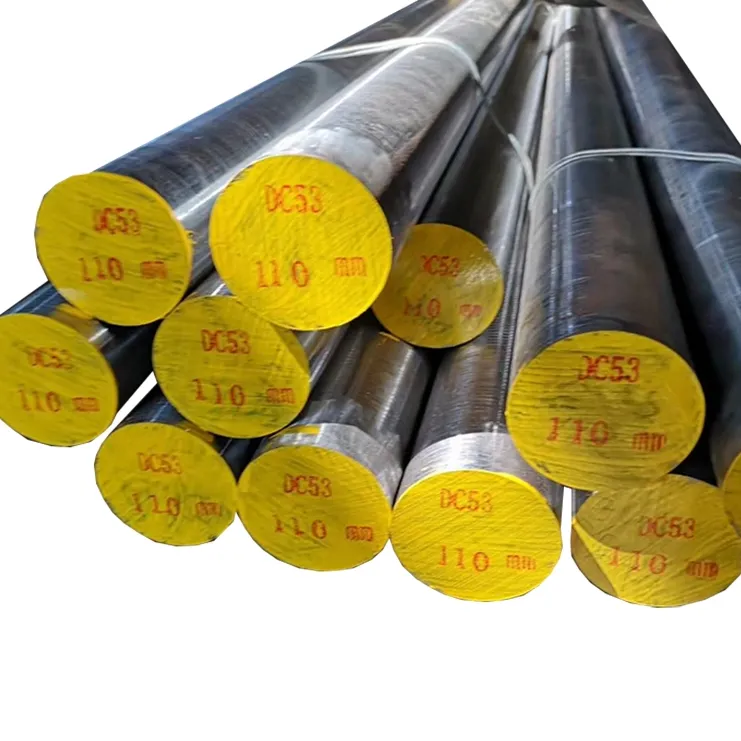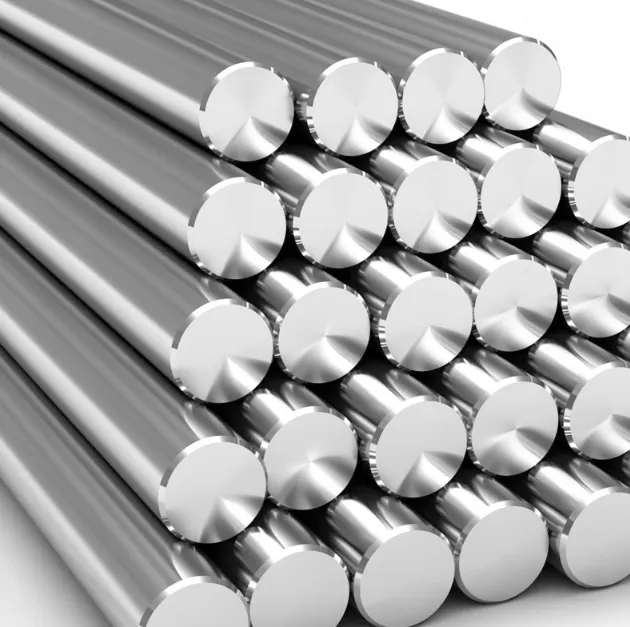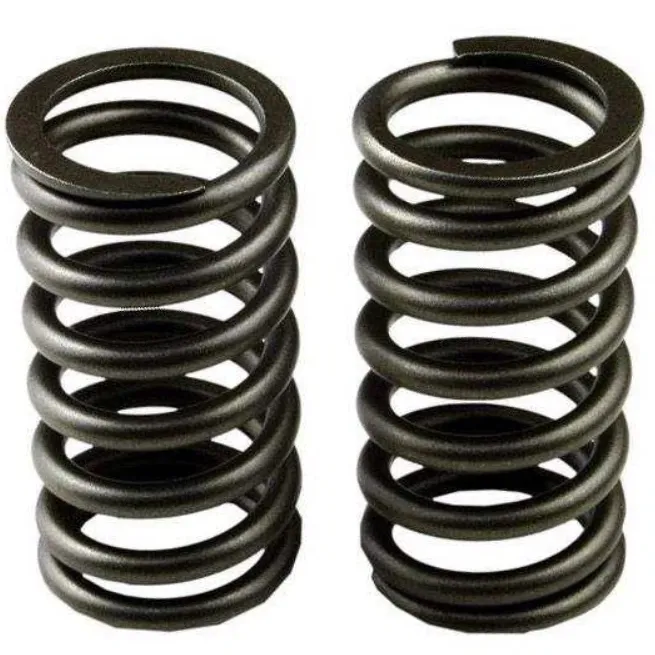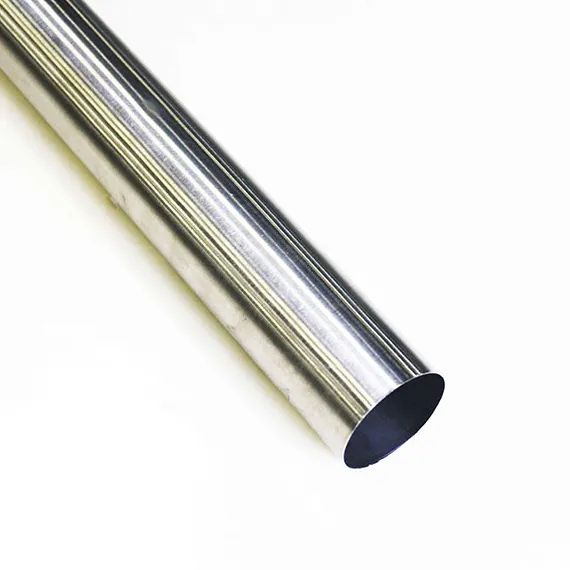Monel K-500 wire is the top choice when an application needs Monel-grade corrosion resistance together with spring-grade strength: it offers significantly higher yield and tensile strength than Monel 400 because of controlled additions of aluminum and titanium plus a tailored age-hardening cycle, while retaining excellent seawater and many chemical-media resistance. For buyers who need certified, ready-to-ship stock in small to large lots, MWalloys supplies Monel K-500 wire at factory-direct pricing, with rapid dispatch from our China inventory.
What is Monel K-500 wire?
Monel K-500 is a precipitation-hardenable nickel-copper alloy (UNS N05500) that combines the corrosion resistance typical of Monel 400 with substantially greater strength and hardness. The extra strength comes from small controlled additions of aluminum and titanium, which form fine Ni₃(Ti,Al) precipitates when the alloy receives the correct heat treatment. The trade name Monel belongs to Special Metals; K-500 is widely sold under that trade name or under generic designations (Alloy K-500, Ni-Cu K500).
Why Monel K-500 wire differs from Monel 400
Monel 400 provides exceptional corrosion resistance and toughness. K-500 keeps nearly the same corrosion profile but is engineered for strength. The two small alloying elements — aluminum and titanium — enable precipitation hardening when the wire is thermally processed. That microstructure raises yield and tensile strengths (often by a factor of two or three compared with 400), which makes K-500 the preferred grade for loaded springs, high-stress fasteners, and shafts that operate in seawater or sour environments. Note: in the age-hardened condition K-500 can be more sensitive to certain types of stress-corrosion cracking (SCC) than Monel 400, so selection and finishing must consider environment and stress state.
Typical chemical composition (nominal / technical ranges)
| Element | Typical range (wt%) |
|---|---|
| Nickel (Ni) | ≥ 63.0 |
| Copper (Cu) | 27.0 – 33.0 |
| Aluminum (Al) | 2.3 – 3.15 |
| Titanium (Ti) | 0.35 – 0.85 |
| Iron (Fe) | ≤ 2.0 |
| Manganese (Mn) | ≤ 1.5 |
| Silicon (Si) | ≤ 0.50 |
| Carbon (C) | ≤ 0.18 |
| Sulfur (S) | ≤ 0.01 |
(Source: Special Metals technical data, manufacturer datasheets and international stockists — check order specification for exact mill certificate numbers)
Mechanical properties
Mechanical numbers depend heavily on diameter, cold-draw amount, and heat treatment. Typical ranges for wire and small-section rod, in commonly used tempers:
-
Annealed / solution-annealed (soft)
-
Tensile: ~70–100 ksi (480–690 MPa)
-
Yield (0.2% offset): ~30–60 ksi (200–415 MPa)
-
Elongation: good (15–30% typical, size dependent).
-
-
Cold-worked (spring temper) and aged (precipitation hardened)
-
Tensile: 100–170+ ksi (690–1170 MPa), depending on process and section.
-
Yield: ~90–140 ksi (620–965 MPa) in heavy spring tempers.
-
Hardness: Rockwell C and Brinell values increase markedly after aging.
-
Practical takeaway: for critical spring and tensile components specify exact temper and request mill test report (MTR) with tensile/yield results on representative coupons or full-size samples.
Forms, sizes, tempers, finishes and packaging for wire
MWalloys and most specialty stockists supply Monel K-500 wire in:
-
Round fine wire (from very fine gauge thermocouple/precision wire up to ~6 mm depending on supplier)
-
Flat/rectangular wire (for spring strip and contact applications)
-
Spools (standard for fine wire; common spool sizes 1–25 kg)
-
Coils / cross-wound spools for larger diameters
-
Cut lengths for fasteners and pins
-
Surface finishes: bright drawn, pickled, electro-polished on request
-
Tempers: annealed (soft), cold-drawn (spring temper), aged (precipitation hardened), stress-relieved — specify AMS/ASTM temper codes in the PO.
Packaging is typically moisture-protected (poly bag + desiccant) inside wooden or metal spools, with MTR and heat-treatment certificate attached.
(Specifiers should name required specs in the purchase order: UNS N05500, AMS 4676 for wire, ASTM/ASME equivalents where relevant).
Typical uses where wire is the correct form
Monel K-500 wire is widely used where high strength in a small cross section and excellent corrosion resistance are needed:
-
High-load springs (compressive/extension/torsion springs for subsea hardware)
-
Spring contacts and electrical connectors in corrosive environments
-
Small fasteners, pins and retaining clips used in marine and petrochemical service
-
Wire forms and small shafts in high-velocity seawater or sour gas service
-
Medical / surgical instruments where nickel-copper properties are useful (with biocompatibility checks)
-
Aerospace small components that operate in salt-spray and fatigue loading conditions.
Forming, heat treatment and welding
-
Cold drawing is normal for fine wire; the alloy work-hardens and often receives final aging to reach requested strength.
-
Age hardening (precipitation) must be controlled: solution anneal → quench when specified → final aging at recommended temperature/time to generate Ni₃(Ti,Al) precipitates. Over-aging or incorrect surface finish can lower fatigue life.
-
Welding: K-500 can be welded but intense local heating affects precipitation. Typically weld, solution-anneal, then age to restore properties; in some welding procedures special filler metals (ERNiCu-7 variants) are used.
-
Machining & forming: Monel K-500 work-hardens rapidly. Use sharp tooling, rigid setups, and light depths of cut. For wire forming, avoid sharp bends below recommended bend radii for the gauge/temper.
Standards, test certificates and traceability
When buying K-500 wire for critical use, require:
-
UNS designation: N05500.
-
Wire specification: AMS 4676 (common for wire), and ASTM/ASME/QQ-N-286 references for other forms. Request the specific spec revision in PO.
-
Mill Test Report (MTR): chemical analysis and mechanical test results traceable to the heat number.
-
Heat treatment certificate indicating solution / aging cycles used.
-
NDT / special testing (e.g., hardness, tensile on finished wire, intergranular corrosion or SCC screening) when required by application.
-
Third-party inspection (SGS, Bureau Veritas, etc.) is frequently requested for high-value deliveries.
2025 global price snapshot for Monel K-500 wire
Important: alloy prices fluctuate with global nickel and copper commodity markets, certificate level, spool size, and lot quantity. The table below gives typical factory/FOB ranges observed in 2025 for small to medium purchase quantities (retail/low MOQ). Ask suppliers for firm quotes including certifications and freight.
| Region | Typical 2025 price per kg (FOB / factory, small lot) | Representative source |
|---|---|---|
| China (factory) — standard wire | USD 20–40 / kg | Alibaba, Made-in-China listings. |
| India (merchant/stockist) | USD 25–75 / kg (wide spread; certified/processed higher) | Indian stockists / TradeIndia listings. |
| Europe (distributor, small qty) | USD 50–90 / kg (higher due to certification/traceability) | European alloy distributors (VDM datasheet + supplier quotes). |
| USA (distributor, small qty) | USD 45–95 / kg (mill-certified, short lead) | US specialty metal merchants; Alibaba import comparisons. |
| Large OEM contract pricing | Negotiated; typically 10–30% below small-lot quotes | Based on volume contracts and long-term supply agreements. |
How to interpret: Chinese factory quotes typically lead on price but check MTR, traceability, and heat-treatment records. European and US stock may cost more but can shorten lead time and simplify certification. For mission-critical parts, prioritize certified material even if unit cost is higher.
Purchasing and technical selection checklist
-
Specify UNS N05500 and AMS 4676 (if wire).
-
State required final temper (e.g., cold-drawn + aged to X ksi tensile).
-
Insist on MTR tied to heat number, and include required tests on PO (tensile, hardness).
-
Confirm surface finish and packaging (spool type, desiccant).
-
Request sample coil or witness test for new suppliers.
-
Ask if supplier performs special tests: intergranular corrosion screening, SCC tests for sour environments.
Frequently asked questions
-
Is Monel K-500 magnetic?
No — K-500 is essentially nonmagnetic down to very low temperatures; certain cold-work/aged conditions can produce very small magnetic responses, but for practical purposes it is nonmagnetic. -
Can K-500 wire be used in seawater?
Yes — K-500 retains Monel 400-class seawater corrosion resistance; many pump shafts and propeller applications use K-500. In stagnant seawater pitting risk rises, so surface finish and design matter. -
What standards should I request for wire?
Commonly AMS 4676 for wire; cite UNS N05500 and any heat-treatment or mechanical values required. -
How does aging affect fatigue life?
Proper aging raises tensile and yield and can improve fatigue in many conditions, but surface condition and residual stresses strongly affect fatigue life; polishing or shot-peening may help. -
Can I weld Monel K-500 wire?
Welding is possible but requires careful post-weld heat treatment (solution + age) to restore properties; for small wire joints brazing or mechanical joining may be preferred. -
Is K-500 safe for sour-gas (H₂S) service?
K-500 shows resistance to many sour environments, but in the aged condition sensitivity to SCC can occur in certain media. Conduct application-specific testing or follow industry sour service guidance. -
What sizes are common for spring wire?
Fine wire gauges up to around 6 mm are commonly available; many suppliers produce sizes down to fractions of a millimeter for precision springs. Confirm availability with supplier. -
How to specify bend radius for wire forms?
Use supplier bend-radius guidelines; for heavily aged wires larger radii and stress-relief operations improve durability. If uncertain, request sample forming trials. -
What certificates come with quality stock?
Standard: MTR (chemical & mechanical), heat-treatment certificate, and spec compliance (AMS/ASTM). Third-party inspection on request. -
Are there lower-cost alternatives to K-500?
Monel 400 gives better SCC behavior in some states and lower cost, but lacks K-500’s strength. For pure strength, some stainless grades or nickel-based superalloys can be alternatives — tradeoffs include corrosion, magnetism, and machinability. Evaluate per application.
Why buy Monel K-500 wire from MWalloys
-
Factory pricing: MWalloys supplies direct from our China mills and stock, offering 100% factory price advantage on standard gauges and custom orders.
-
Stock & lead time: We maintain stocked coils for common gauges; small orders ship rapidly from our warehouse.
-
Certification: Full MTRs and process traceability included; third-party inspection available.
-
Custom processing: Cold drawing, aging to specified hardness/tensile, cutting to length and special spooling for automated assembly.
-
Technical support: Our engineers support temper selection, forming trials, and specification drafting for OEM approvals.

